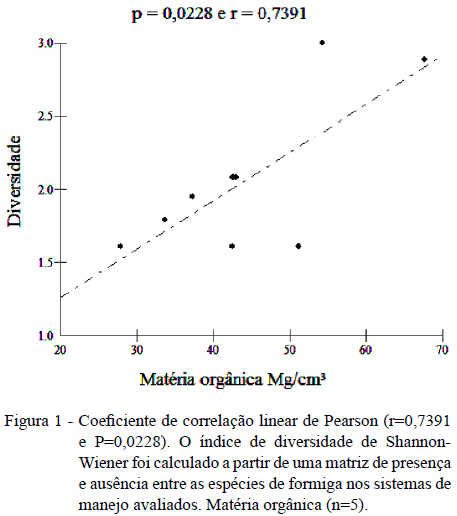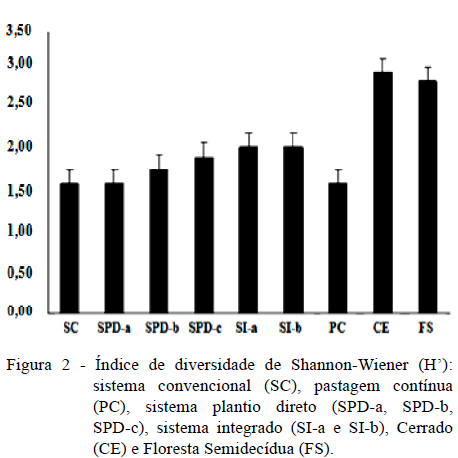The aim of this study was to evaluate the ant community in different systems involving the crop rotations between livestock, under no-tillage, compared to other management systems and natural systems of the Mid-Western region. The study was carried out in the Dourados, Mato Grosso do Sul State, Brazil, on a Typic Hapludox soil, in parcels including crop-livestock rotation production system under no-tillage, rotated every two years, no-tillage crop system, succession of crops under conventional tillage, continuous pasture and two fragments of native vegetation, Cerrado and Semideciduous Forest. The samples of soil were conducted during the rainy season (2009/2010), and litter sampling performed with the use of mini-Winkler extractors, following the protocol ALL (Ants of the Leaf Litter). The results indicated that the morphospecies of Strumygenys sp. and Hypoponera sp. as potential bioindicators of soil quality, depending on their frequency changes in response to different systems observed. The study have demonstrated the importance of maintaining forest fragments as stock of local biodiversity and showed that integrated systems, such as crop-livestock, are less impact ful to the meso-fauna and contribute to the conservation of ant and maintenance of soil quality.
biodiversity; agroecosystems; soil management





